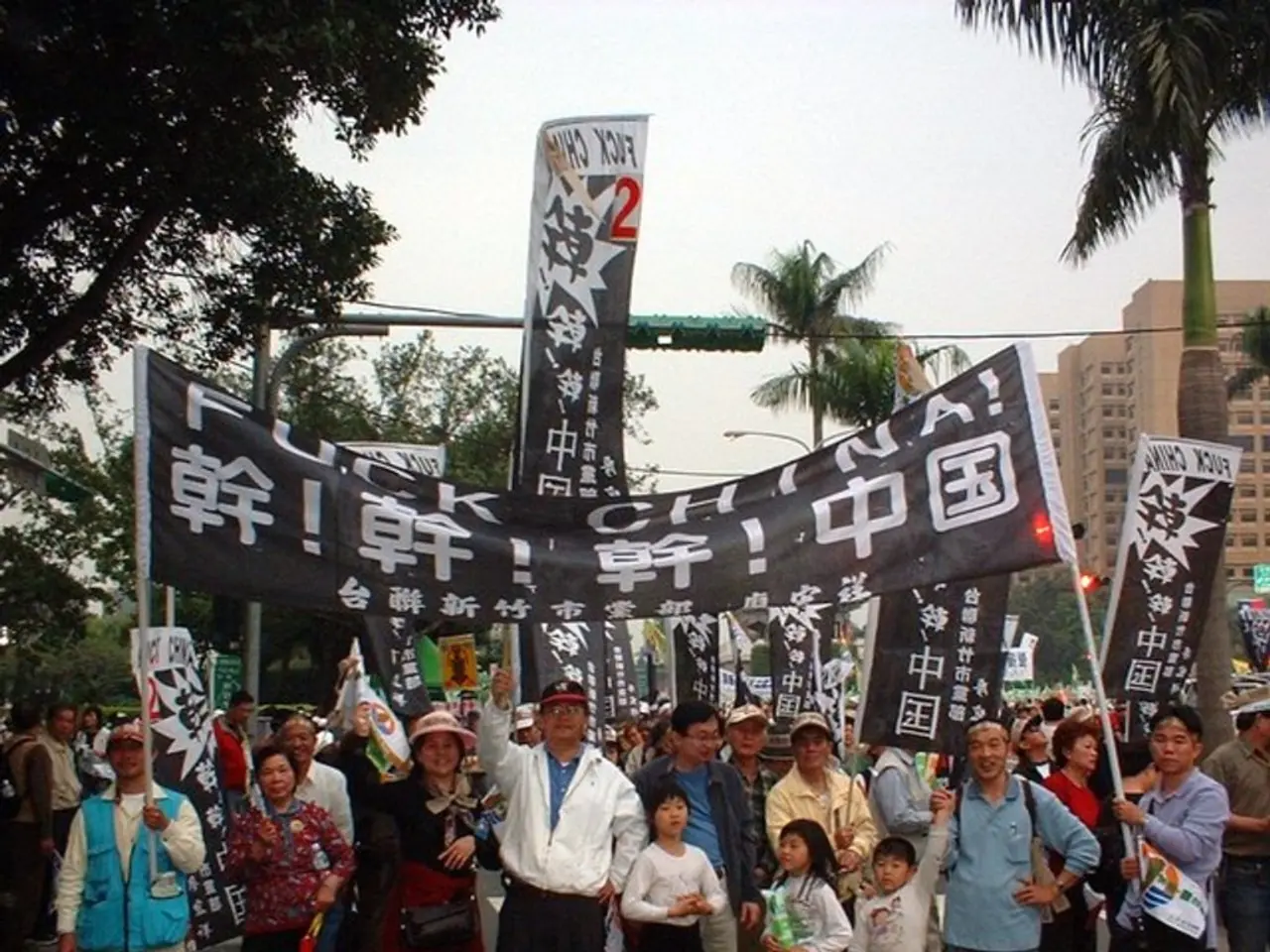Scandal Sparks Political Upheaval: Thai Prime Minister Issues Apology in Crisis-torn Government
Shinawatra, the Prime Minister, expresses regret over a contentious phone conversation.
Social Media Newspaper Email Paste Link Share
Thailand may witness a dramatic shift in its government as Prime Minister Paetongtarn Shinawatra makes a public apology following a controversial phone call with Cambodia's ex-prime minister, Hun Sen. "I regret the public conversation with a Cambodian official that caused public distress," declares Paetongtarn. One of her alliance partners has already defected due to the controversial conversation's public disclosure, prompting demands for new elections.
During their private conversation, Paetongtarn addressed Hun Sen as "uncle" and disparaged the Thai border's regional military chief. This fueled widespread criticism on social media platforms.
The right-wing Bhumjaithai Party abandoned the government on Wednesday following the leak, claiming the call displayed a breach of the country and army's honor. If another partner departs, Paetongtarn would lack a majority, potentially leading to fresh elections or the formation of a new coalition.
The present political chaos is the latest episode in nearly two decades of turmoil in Thai politics, marked by military coups, street protests, and significant court decisions. These recurring instabilities can be traced back to the ongoing conflict between the military and conservative powers, such as the royalist establishment, and the progressive forces, including the Shinawatra family, who have dominated Thailand's political landscape.
[Sources: ntv.de, AFP]
Beyond the immediate cause of the controversy-laden phone call, this political climate has been fueled by the 2024 Thai Senate election scandal, where corruption allegations threatened the legitimacy of the democratic process. Moreover, the crisis deepened due to the political repercussions following the removal of Prime Minister Srettha Thavisin by the Constitutional Court in 2024 and the controversial ascension of Paetongtarn as the new prime minister.
The crisis has escalated as rival political parties take advantage of the situation to weaken the government. Apart from the military and security apparatus, the controversial call has also led to media scrutiny, with Lieutenant General Boonsin Padklang, the military commander responsible for the border region, being a key target.
The ongoing crisis likely signifies a pivotal juncture in Thai politics, with potential repercussions such as political instability, the dissolution of parliament, or even military intervention being debated. Though such escalations are currently averted, the situation remains unpredictable, and the risk of further conflict is present if the crisis is not resolved effectively.
- The ongoing political instability in Thailand, ignited by Prime Minister Paetongtarn Shinawatra's controversial phone call, underscores the need for a reevaluation of the community and employment policies within the country, as the conversation's public disclosure has already led to an alliance partner's defection and demands for new elections.
- Amidst the escalating political crisis in Thailand, the crisis also sheds light on the importance of policy-and-legislation, politics, general-news, and war-and-conflicts in shaping a nation's social, economic, and political landscape, as the 2024 Thai Senate election scandal, the Constitutional Court's removal of Prime Minister Srettha Thavisin, and the ongoing military and media scrutiny highlight the need for stronger laws and regulations to maintain the integrity of the democratic process.




